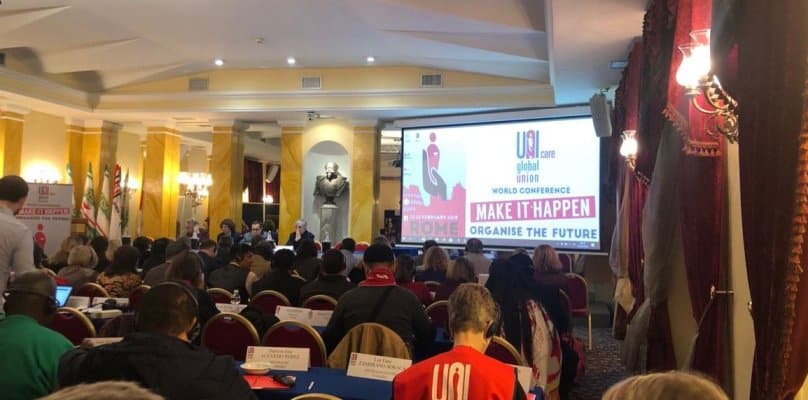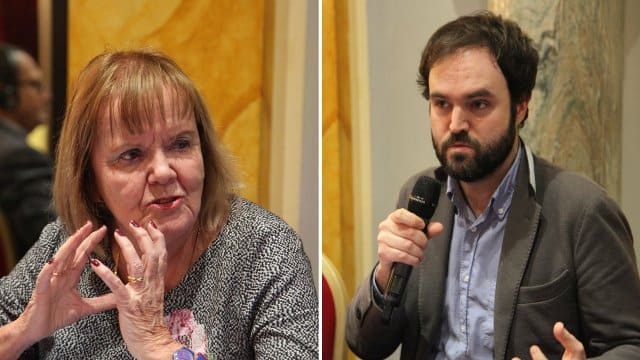
Lack of labour rights, or inadequate enforcement of such rights, put care professionals all over the world in situations of unbearable pressure. There is a relation between the low consideration in society for care services for older people and the extremely difficult working conditions of care professionals.
Together with UNICARE – the global trade union movement of care workers in the private sector – AGE have been exploring the link between working conditions in care and the dignity of older people in need of care services. This cooperation materialised for the first time in a joint workshop to mark the 2018 Word Elder Abuse Awareness Day. This built on the premise that AGE’s human rights agenda and trade unions’ working conditions agenda can be mutually reinforcing to a big extent, namely in raising awareness of the neglect and paternalistic approaches prevalent in care, and the persistency of society’s inability to guarantee dignity in care.

Room for further discussion was identified, both in terms of advocacy strategy as well as regarding mutual learning, for instance, regarding the implications of person-centeredness for workers, or the responsibilities of older people in need of care when they employ care workers directly.
For more information, you may contact Borja Arrue, AGE’s staff member responsible for long-term care and elder abuse, borja.arrue@age-platform.eu





